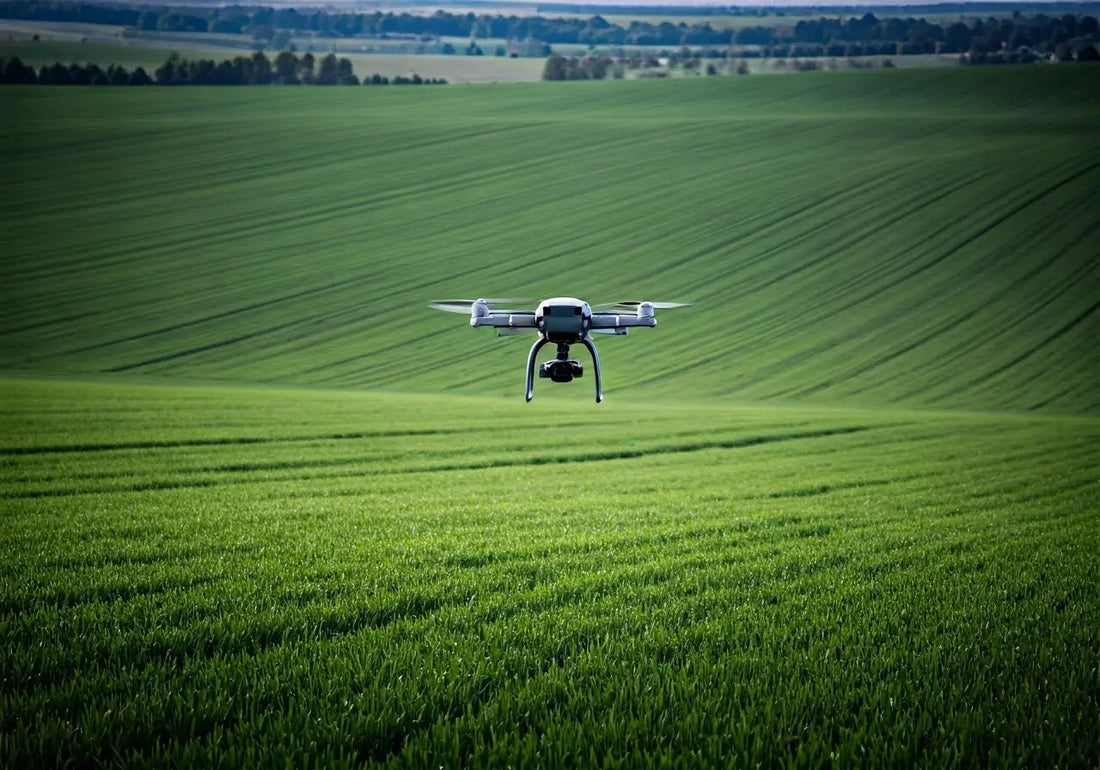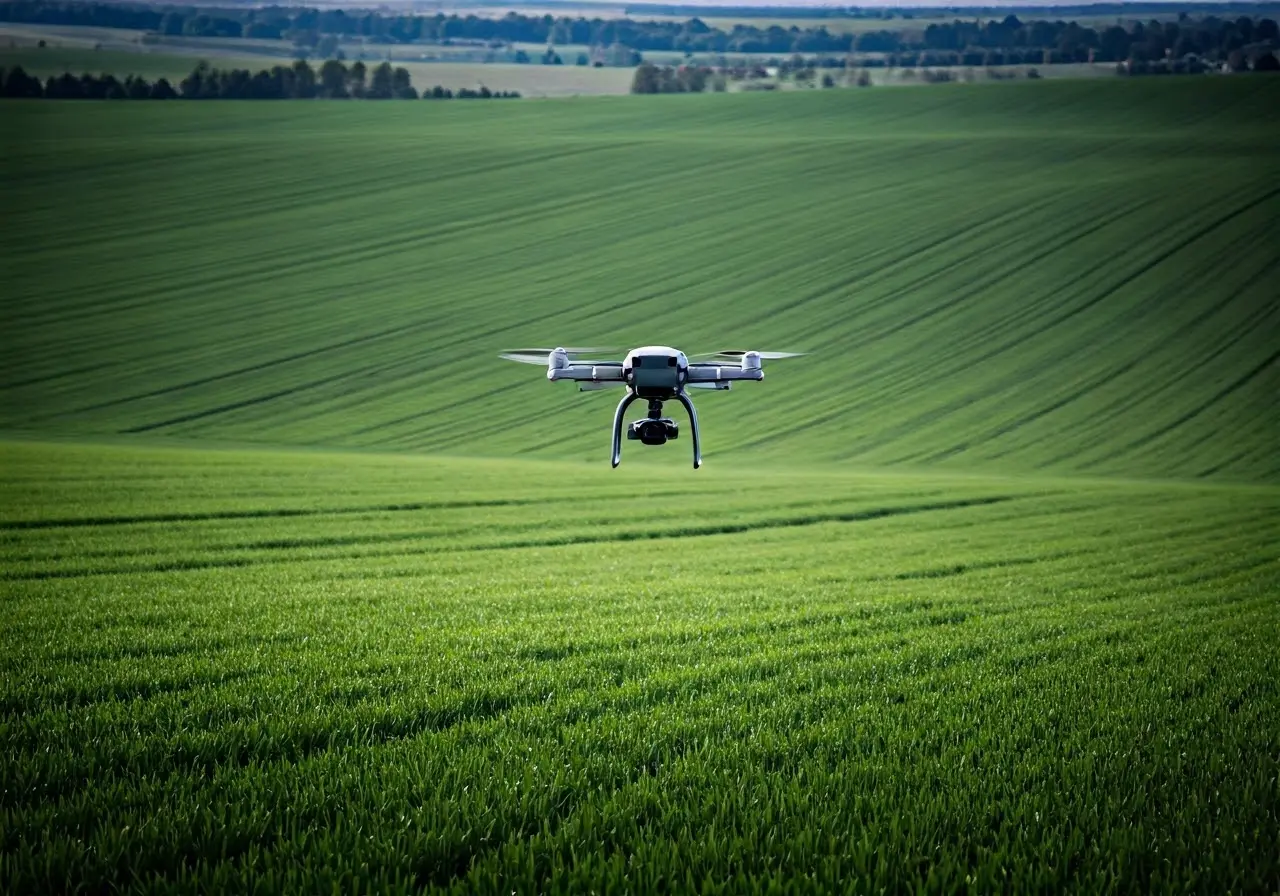
Exploring the Benefits of Drone Trailers in Modern Agriculture
Share
In recent years, the agricultural sector has witnessed a significant transformation with the advent of advanced technologies. Among these innovations, drone trailers have emerged as a game-changer, offering solutions that improve efficiency, productivity, and sustainability. In this blog, we will delve into the various benefits of drone trailers and explore how they are reshaping modern agriculture.
Understanding Drone Trailers: A Brief Overview
Drone trailers are specially designed vehicles that facilitate the efficient deployment, transportation, and operation of drones in agricultural settings. These trailers are equipped with advanced technology to support various agricultural tasks, making them vital tools for modern farmers. As the name suggests, they act as a carrier for drones, allowing them to be easily moved from one field to another. This portability is crucial as it saves time and reduces the complexity of managing and operating drones across large expanses of farmlands. With drone trailers, farmers can perform various functions such as crop monitoring, seeding, spraying, and more, seamlessly across different farm areas.
A big advantage of using drone trailers is the efficiency they bring to farming operations. Imagine having a mobile command center that not only stores and maintains the drones but also ensures they are ready for deployment at any time. Farmers benefit from reduced manual labor and increased speed in operations, allowing them to cover more ground effectively. This level of logistical efficiency was traditionally reserved for only the biggest operations but is now accessible to farms of various sizes, thanks to the scalability offered by drone trailers.
Enhancing Precision in Crop Monitoring
Drone trailers play a crucial role in enhancing precision agriculture. By allowing drones to monitor crops with high accuracy, farmers can gather real-time data on crop health, soil conditions, and pest infestations, enabling timely interventions and optimal resource allocation. This is particularly important for large-scale operations where manually gathering data would be incredibly time-consuming and less accurate. Drone trailers facilitate this process by ensuring that drones are efficiently managed and deployed to capture the necessary data time and again.
The use of drone trailers in crop monitoring goes beyond just data collection. They enable drones to be positioned strategically across various farm plots, which is key for maintaining oversight over wide agricultural landscapes Without the inherent mobility and capability provided by drone trailers, achieving such precision in large-scale crop monitoring could be a daunting task for farmers.
Improving Efficiency in Resource Management
With drone trailers, farmers can manage resources more efficiently. Drones can cover large areas quickly, identifying exactly where irrigation, fertilizers, and pesticides are needed, thus minimizing waste and maximizing the efficient use of resources. This precision reduces the risk of over-application, which not only saves cost but also prevents potential damage to crops due to chemical overload.
The data gathered by drones, managed through drone trailers, provides an informative analysis of field conditions. For instance, farmers can monitor moisture levels remotely and adjust irrigation systems accordingly. This not only conserves water but also ensures that plants receive optimal hydration, promoting healthy growth. As such, drone trailers hold substantial promise for improving overall farm resource management, translating to sustainable practices.
Moreover, drone trailers play a pivotal role in optimizing farm operations by enabling quick transitions from monitoring to treatment. Farmers can swiftly identify areas of concern and deploy necessary measures through drones without delay. This integration of data and action is a hallmark of efficient resource management, making drone trailers indispensable in modern agricultural setups.
Reducing Environmental Impact
One of the significant advantages of using drone trailers in agriculture is the reduction in environmental impact. By optimizing the use of inputs through precise application, drone trailers help minimize harmful runoff and reduce the overall carbon footprint of farming operations. This precision cuts down on excessive use of chemicals and water, which is crucial in preserving the surrounding ecosystem.
Drone trailers enable targeted interventions, ensuring that only the required quantities of water, fertilizers, and pesticides are used. This careful management of resources is a substantial step forward in tackling issues such as soil degradation and water pollution, which often result from conventional farming practices. By harnessing drone technology, farmers contribute to environmental conservation while maintaining productive and profitable agricultural systems.
Furthermore, the advancement in drone and trailer technologies promotes responsible resource use, which is integral to sustainable farming. For example, drones can apply treatments in a focused manner, protecting non-target species and preserving biodiversity. As such, the use of drone trailers is a win-win solution that aligns with ecological preservation ambitions and farming productivity goals.
Facilitating Drones’ Versatile Applications
Drone trailers also expand the versatility of drone applications beyond just monitoring. They support tasks such as planting, pollination, and even livestock management, showcasing the diverse capabilities of drones when paired with the right equipment. With trailers facilitating this functional deployment, farmers can maximize their investment in drone technology for various agricultural applications.
Innovation doesn’t stop at deployment; it extends to how drone trailers integrate multiple functions in farming. For instance, seeding drones can cover large fields at an unprecedented speed, providing a practical solution to agriculture’s labor demands. Furthermore, in regions with pollination challenges, drones assist in compensating for declining insect populations, ensuring that crops receive the pollination necessary for high yields.
Incorporating drone trailers into these operations effectively streamlines the workflow, reducing the time and labor required for different farming tasks. The versatility offered by drone trailers goes a long way in fortifying farming operations against the demands of modern agriculture, from planting through to harvest.
The Future of Farming with Drone Trailers
Embracing drone trailers in modern agriculture not only enhances productivity and efficiency but also aligns with sustainable farming practices. As technology continues to evolve, these innovations will undoubtedly play an integral role in the future of farming, benefiting both farmers and the environment. By understanding and leveraging the capabilities of drone trailers, the agricultural industry can look forward to a more prosperous and sustainable future.

